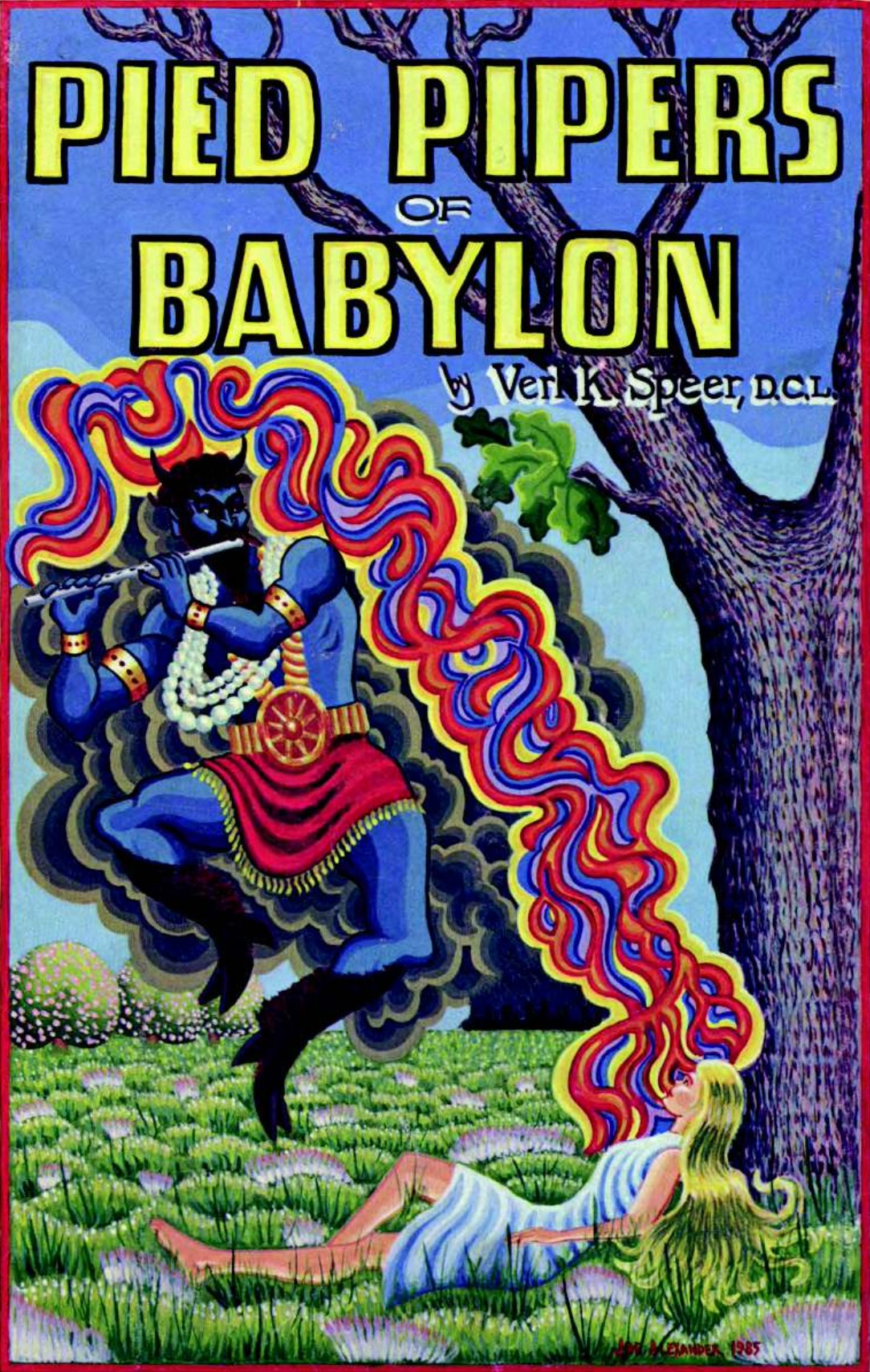Verl K. Speer
Pied Pipers of Babylon (1985)

Pied Pipers of Babylon is the book written by Verl K. Speer in 1985. Mr. Speer explains the origins and Development of the Common law according to his research:
- Old Testament,
- Great Migrations,
- Society of Free Men,
- A Common Law Jury of 12.
"These laws cannot be written by man; it is mankind's conscience."
Some sources, including, date Common Law back to the inquisitorial system in England during the 12th and 13th centuries, as the collective judicial decisions that were based in tradition, custom and precedent. Pied Pipers of Babylon shows the development of the Common Law dating back to the Old Testament, originating with the Laws of God and Nature. It is rooted in antiquity, a beautiful history of men becoming free.
The words were coined from observations made within the Catholic Church of old England. These people had among them a common notion of an unwritten law expressed as conduct. They had rules enforced by a responsibility borne by each person to know what was right or wrong and to apply that knowledge in their dealings with one another - a "common law."
Common Law defined in the book Pied Pipers of Babylon
"The Law of Conscience as applied to governing the affairs and actions of the individual, and the affairs between individuals. Its essence is the golden rule. Its science is the science of living honestly with one's self and with other individuals. It is the coalescing of the two great powers bestowed upon Man by his Creator - the power to reason and the power of the spirit, working together in harmony with the laws of God and Nature. It is loyalty-to-self, loyalty-to-truth, as revealed to each individual through his conscience. Being the Law of Conscience, it cannot be written - it can only be written about. All that can be written about the Common Law is how it manifests itself through the individual who is loyal to self- loyal to his conscience. It is frequently said that Common Law is custom and usage from immemorial antiquity, that Common Law is the judgments and decrees of courts recognizing these usages and customs, that Common Law is the statutory and case law background of England and the American Colonies before the American Revolution - and now, our courts tell us that there is such a thing as "specialized federal common law" or just "federal common law." None of these are Common Law in its true sense and meaning. At best, they are manifestations of individual decisions and actions in particular situations, pursuant to conscience. At worst, they are manifestations of decisions and actions in situations wherein reason, spirit, and conscience of the individuals involved were stifled or suspended. To say otherwise is to lose or change the important thing - the true meaning of Common Law."
Downloads and Links
- Download Pied Pipers of Babylon (1985) by Verl K. Speer & George E. Hill & David C. Chovanak & Michael J. Pierson - PDF (15 MB) - 368 pages.
- Read Pied Pipers of Babylon (1985) by Verl K. Speer & George E. Hill & David C. Chovanak & Michael J. Pierson on The Internet Archive and download in different formats
- Web search for the book by author and title
